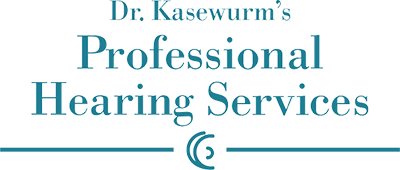
Don’t forget to wash your ears. Whenever you say that, you unavoidably use your “parent voice”. Perhaps when you were a child you even recall your parents telling you to do it. That’s the type of memory that can take you back to simpler times as you wrap yourself in the nostalgia of youth.
But that advice can be pretty helpful. Your hearing can be significantly affected by out-of-control earwax. Still worse, this organic compound can harden in place making it difficult to clean out. In other words, the cleaner you keep your ears, the better off you’ll be.
Excessive earwax? Eww!
Earwax is, well, sort of gross. And we’re not going to try to change your mind about that. But it is actually important for the health of your ears. Created by special glands in your ear and pushed outwards by the chewing motions of your jaw, earwax can help keep dust and dirt out of your ears.
So your ears will stay clean and healthy when they produce the ideal amount of earwax. However counterintuitive it sounds, the truth is that earwax itself isn’t a sign of bad hygiene.
An excessive amount of earwax is where the trouble starts. And, understandably, it can sometimes be a little bit challenging to tell when a healthy quantity of earwax begins to outweigh its advantages (literally).
What does excess earwax do?
So, what develops as a consequence of excess earwax? There are several issues that may develop as a result of out-of-control earwax or earwax that builds up over time. Those problems include:
- Infection: Infections can be the outcome of excessive earwax. If fluid builds up, it can become trapped behind plugged earwax.
- Earache: One of the most prevalent signs of excess earwax is an earache. Sometimes, it doesn’t hurt that much, and other times it can hurt a lot. This usually happens when earwax is causing pressure in places where it shouldn’t be.
- Dizziness: Your ability to maintain balance depends heavily on your inner ear. You can suffer from episodes of dizziness and balance issues when your inner ear is having problems.
- Tinnitus: When you hear buzzing and ringing that isn’t actually there, you’re usually dealing with a condition known as tinnitus. Tinnitus symptoms can show up or get worse when earwax is built up inside your ear.
This list is just the beginning. Headaches and discomfort can happen because of uncontrolled earwax accumulation. If you use hearing aids, excess earwax can impede them. So excessive earwax might make you think your hearing aids are having problems.
Can earwax affect your hearing?
The quick answer is yes. Hearing loss is one of the most prevalent problems connected to excess earwax. Usually causing a form of conductive hearing loss, earwax accumulates in the ear canal, preventing sound waves and vibrations from getting in. The issue usually clears up when the earwax is removed, and usually, your hearing will go back to normal.
But if the buildup becomes severe, permanent damage can develop. And tinnitus is also typically temporary but when earwax blockage persists, permanent damage can cause tinnitus to become an enduring condition.
Prevention, treatment, or both?
If you want to safeguard your hearing, then it makes sense to keep an eye on your earwax. It’s incorrect cleaning, not excess production that leads to buildup in most cases (for example, blockage is often a result of cotton swabs, which tend to press the earwax further in instead of getting rid of it).
It will usually require professional eradication of the wax that has become hardened to the point that you can’t remove it. You’ll be able to start hearing again after you get that treatment and then you can start over, cleaning your ears the right way.
Call Today to Set Up an Appointment
References
https://my.clevelandclinic.org/health/diseases/14428-ear-wax-buildup–blockage

